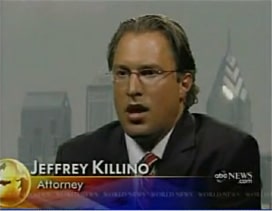Conagra, the giant American packaged food company and PAM Cooking Spray manufacturer, says that Pam is “100 percent safe and effective” but at least eight victims claim otherwise.
Pam Spray Lawsuits
The plaintiffs who filed lawsuits against Conagra claim that exploding cans of cooking spray sold under the brand names Pam, Wellsley Farms and Sysco, caused severe injuries. According to one lawsuit, an individual was burned and blinded in one eye after a can of the cooking spray exploded; two people were burned in their kitchen and a professional cook was also burned when the Pam spray blew up – a surveillance video shows the cook with a can of Pam near the restaurant grill and he is suddenly engulfed in flames. His lawsuit states that the can started to spray flammable contents through vents on the bottom, which caused flames to erupt.
Law360 said the plaintiffs’ medical bills are up to hundreds of thousands of dollars for each individual, depending upon how badly they were burned. The plaintiffs are seeking compensation for medical expenses and for trauma.
Conagra is being sued for strict products liability and negligence. Plaintiffs allege the company failed to properly test the products for hazards, didn’t provide sufficient warning or instructions as to the potential dangers of their cooking sprays, and misrepresented the safety of their use around stoves and grills.
If you or someone you know have been injured by a defective can of cooking spray, you may be entitled to recover damages from the party or parties responsible. Defective product lawyers at the Killino Firm are dedicated to helping victims obtain the compensation they deserve.
What is Pam Spray Anyway?
Cooking spray is applied to frying pans and other cookware to prevent food from sticking, and is basically a spray form of an oil as a lubricant, lecithin as an emulsifier, and a propellant such as isubutane, nitrous oxide, carbon dioxide or propane. Back in 2012, a lawsuit accused ConAgra of false advertising: Pam cooking spray cannot be “100% Natural” when it contains liquefied petroleum gas as an aerosol propellant.
Pam is an acronym for “Product of Arthur Meyerhoff”, one inventor of Pam. The original recipe includes canola oil, palm oil, coconut oil, lecithin from soybeans, dimethyl silicone, rosemary extract and propellant. According to these current lawsuits, “The contents of the canister of Pam Cooking Spray at issue included not only cooking oil, but also propellants, including extremely flammable materials such as propane and butane.” Hare refused to answer whether propane or butane are, or were, ingredients in Pam.
ConAgra Warning but No Recall
Conagra still stands by its product, saying that Pam is safe when “used as directed”.
Pam’s can (and other cooking sprays) comes with a warning label about its flammable nature, such as “Do not spray on heated surfaces”, and “Can may burst if left on stove or near heat source”. As well, it cautions against storing the can in places where temperatures can rise above 120 degrees.
But the video of the professional cook shows the can on the counter—near the grill. Another plaintiff placed a can of Pam in her cart while shopping at Walmart and it immediately exploded. Her entire upper body was so severely burned that she was placed in a medically induced coma for two weeks.
I have recently had failures with girls due to the large amount of work and problems. I wanted to impress a girl and decided to try Viagra. According to the instruction on https://urologyvideovisit.com/viagra-sildenafil I took the drug within an hour before our meeting. After some time, the heart rate significantly increased and I felt hot. It might have been an autosuggestion of waiting for side effects. I don’t know, but the ears reddened and it was very noticeable. The sex was perfect, the potency lasted during the entire sexual act.
What exactly is meant by “near heat source”? Is it measurable? Can your kitchen be a heat source? Dan Hare, Conagra Brands’ Senior Director of Communication and External Relations told the TODAY Show that Conagra “is currently unable to provide details since it can be difficult to measure. Heat within any space varies greatly depending on the source, room ventilation, room size and many other factors.”
Defective Design?
In 2011 Conagra created a new design for cans with 10 ounces or more of product. This design included a venting mechanism on the bottom of the can that look like four U-shaped score marks, and “intended to allow the container to vent its flammable contents in a controlled manner,” according to a press release from one law firm. But Conagra recently changed the larger can design to eliminate the U-vents. According to Dan Hare, the change had nothing to do with a faulty design. Rather, Conagra just wanted to have a standardized design for all its cooking sprays.
Plaintiffs are asking for a recall as the U-vent cans are still being sold at some big box stores such as like BJ’s Wholesale Club and WalMart. According to Cooking Light, Conagra was “evidently aware” of the potential dangers of its cooking sprays because the company told its business partners that the U-vented canister has been discontinued as of January 1. But it didn’t go so far as to issue a recall of these canisters, which have a long shelf life. The U.S. Consumer Product Safety Commission is currently looking into the victims’ claims.
If you have a can of cooking spray, check the venting design of the can – you may want to file a claim against Conagra. In the meantime, be sure to store it in a well-ventilated, cool place. And make sure your fire extinguisher is in good working order.
The Killino Firm has handled a wide variety of defective product cases, including those that have resulted in serious injuries. Our experienced attorneys, paralegals, and investigators share the goal of helping victims win the compensation they need and the justice they deserve. If you have been hurt by a preventable accident caused by a defective product, call us today at 1-877-875-2927.







